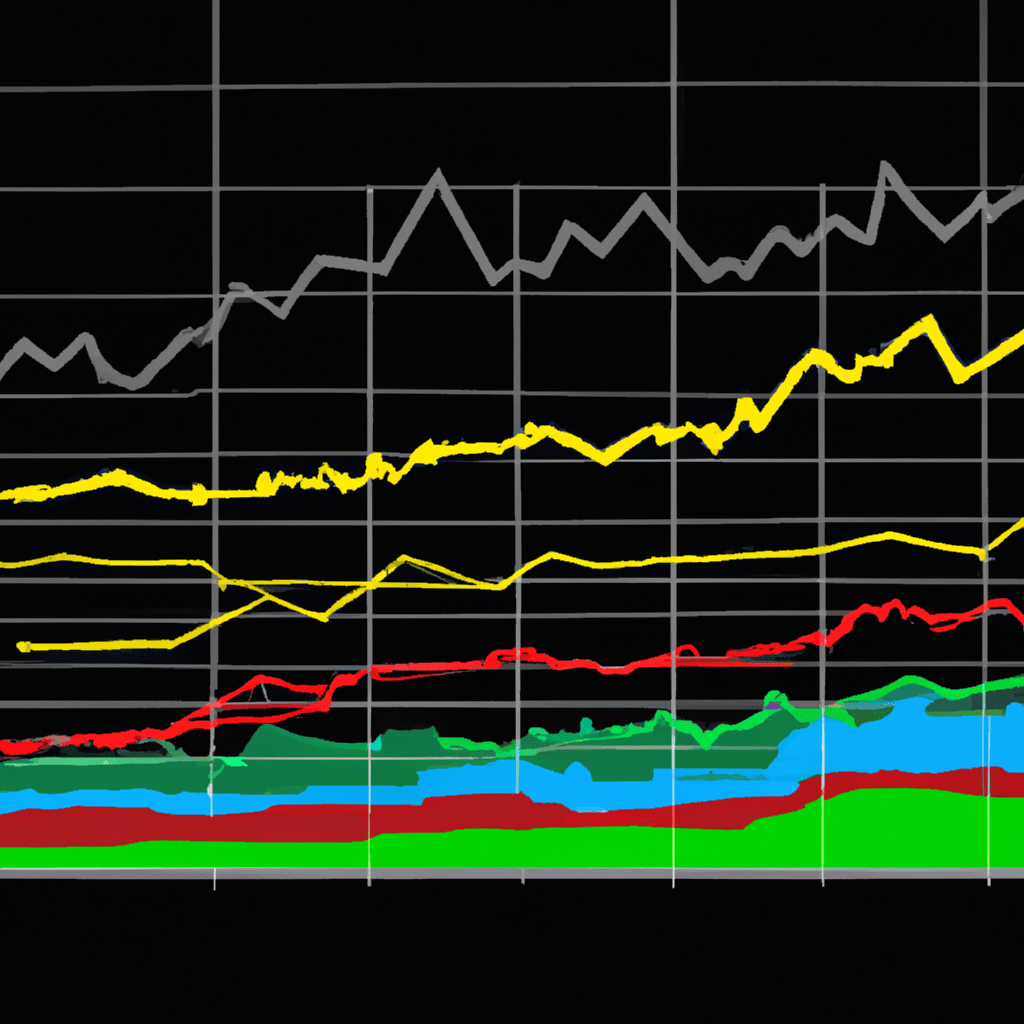Welcome to our comprehensive guide on understanding the Financial Market Index. In this article, we will delve into the world of stock indexes, exploring key players and trends in the global market. We will also demystify indices in trading, providing you with everything you need to know about popular stock indexes and sectors. Whether you are a seasoned investor or just starting out, this article will equip you with the knowledge to navigate the complex world of financial market indexes. So, let's dive in and uncover the secrets behind these essential tools for understanding the market.
1. “Understanding Financial Market Index: A Comprehensive Guide”

Financial Market Index: A Comprehensive Guide
The financial market index is a vital tool that provides investors and analysts with a snapshot of the overall performance of a specific market or sector. It serves as a benchmark, allowing market participants to track and compare the performance of various securities, such as stocks, bonds, or commodities, against a specific standard. This comprehensive guide aims to shed light on the significance of financial market indexes, explore the world stock indexes, explain popular stock indexes, delve into the concept of indices in trading, and provide an overview of the six sectors indices.
A financial market index represents a hypothetical portfolio of securities that aims to represent the overall market or a specific sector. It is typically calculated using a weighted average of the prices or market capitalizations of the constituent securities. The index value is expressed in points or as a percentage change from a base period. This numeric representation allows investors to assess the performance of their investments relative to the market as a whole.
World stock indexes are widely followed and provide valuable insights into the global financial markets. These indexes represent the performance of stocks listed on various exchanges around the world. Some prominent world stock indexes include the Dow Jones Industrial Average (DJIA) in the United States, the FTSE 100 in the United Kingdom, the Nikkei 225 in Japan, and the Shanghai Composite Index in China. These indexes act as barometers for the respective economies and provide investors with a gauge of the overall market sentiment.
Popular stock indexes are commonly used to track specific segments of the market. For example, the S&P 500 is a widely followed index that represents the performance of 500 large companies listed on US stock exchanges. It is considered a reliable indicator of the overall health of the US stock market. Similarly, the NASDAQ Composite Index focuses on technology and growth-oriented companies, while the Russell 2000 tracks small-cap stocks.
Indices in trading refer to a group of stocks or securities that are combined to represent a particular market or sector. Traders and investors use these indices to gain exposure to a specific segment of the market without having to buy individual stocks. By trading index derivatives, such as futures or exchange-traded funds (ETFs), market participants can speculate on the overall direction of the market or hedge their existing portfolio positions.
The financial market is often divided into sectors, each representing a distinct industry or business segment. Six sectors indices commonly used by investors include technology, financials, consumer goods, healthcare, industrials, and energy. These indices enable investors to monitor the performance of specific sectors and make informed investment decisions based on sector-specific trends and developments.
In conclusion, understanding financial market indexes is crucial for investors and analysts as they provide valuable insights into the overall market performance and specific sectors. World stock indexes and popular stock indexes serve as benchmarks for global and segment-specific markets. Trading indices allow market participants to gain exposure to a broad market or specific sector without purchasing individual stocks. The six sectors indices enable investors to track the performance of key industries and make informed investment decisions. By utilizing financial market indexes effectively, investors can better navigate the complex world of finance and optimize their investment strategies.
2. “Exploring World Stock Indexes: Key Players and Trends”

Financial Market Indexes play a crucial role in understanding and analyzing the performance of the global stock market. These indexes serve as important benchmarks, providing investors with insights into the overall health and direction of various stock markets around the world. Exploring world stock indexes allows investors to identify key players and trends that can significantly impact investment decisions.
World Stock Indexes, also known as global equity indexes, are composed of a collection of stocks from different countries and sectors. These indexes represent the performance of a specific market or a group of markets. They are typically calculated using a weighted average of the stock prices of the constituent companies.
Popular stock indexes include the S&P 500, Dow Jones Industrial Average (DJIA), NASDAQ Composite, FTSE 100, and Nikkei 225, among others. These indexes are widely followed by investors and financial professionals worldwide due to their broad coverage and historical significance.
Understanding what an index is in trading is essential to grasp the significance of world stock indexes. An index is a statistical measure that represents the value of a specific segment of the market. It serves as a representative sample of the overall market and allows investors to track the performance of a particular sector or industry.
In the world of trading, there are six major sectors indexes that investors focus on. These sectors include technology, healthcare, consumer discretionary, financials, industrials, and energy. Each sector index represents a specific industry or group of related industries. By monitoring the performance of these sectors, investors can gain insights into the overall health and trends of the stock market.
Investors and traders study world stock indexes to identify key players and trends that can impact their investment decisions. For example, if the technology sector index experiences a significant increase in value, it may indicate a bullish trend in the tech industry. Conversely, a decline in the financial sector index may suggest a bearish sentiment in the banking and finance industry.
Tracking world stock indexes is crucial for investors looking to diversify their portfolios and make informed decisions. By understanding the popular stock indexes and the significance of various sector indexes, investors can stay abreast of market trends and make well-informed investment choices.
In conclusion, financial market indexes, such as world stock indexes, provide valuable insights into the overall performance and trends of the global stock market. Popular stock indexes and sector indexes help investors identify key players and monitor market trends. By understanding the significance of these indexes, investors can make informed decisions and navigate the complex world of trading.
3. “Demystifying Indices in Trading: Everything You Need to Know about Popular Stock Indexes and Sectors”

Financial Market Index
Demystifying Indices in Trading: Everything You Need to Know about Popular Stock Indexes and Sectors
In the world of finance and trading, indices play a crucial role in providing investors with an overview of the overall performance of a particular market or sector. These indices, also known as financial market indexes, are essential tools that provide valuable insights into the health and trends of the stock market.
So, what exactly is an index in trading? Simply put, an index is a statistical measure of the performance of a group of stocks or securities representing a specific market or sector. It serves as a benchmark to gauge the overall performance of a particular industry or region.
World Stock Indexes are commonly used to measure the performance of various global markets. These indexes, such as the S&P 500, Dow Jones Industrial Average, and FTSE 100, represent a broad range of stocks from different sectors, providing a comprehensive snapshot of the overall market conditions. By tracking these indexes, investors can assess the performance of the global economy and make informed investment decisions.
Popular Stock Indexes, on the other hand, focus on specific sectors or industries. These indexes provide insights into the performance of a particular sector, allowing investors to identify potential opportunities and risks within that industry. Some of the widely followed sector indexes include the Technology Select Sector Index, Financial Select Sector Index, and Healthcare Select Sector Index.
Understanding the composition of these sector indexes is crucial to comprehending the dynamics of the market. The stock components within each sector index are carefully chosen to represent the overall performance of that particular sector. For instance, the Technology Select Sector Index includes stocks of companies primarily involved in technology-related businesses, such as software development, hardware manufacturing, and telecommunications.
There are six major sectors that are commonly used in sector indexes: technology, financials, healthcare, consumer discretionary, industrials, and energy. Collectively, these sectors encompass a wide range of industries, providing investors with a comprehensive view of the market.
By monitoring sector indexes, investors can gain valuable insights into the performance of specific industries and make informed investment decisions accordingly. For example, if the Technology Select Sector Index experiences a significant increase, it indicates that the technology sector is performing well, and investors may consider allocating more funds to technology-related stocks.
In conclusion, financial market indexes, including world stock indexes and popular sector indexes, are essential tools for investors to assess the overall market conditions and the performance of specific industries. By understanding the role and composition of these indexes, investors can make informed decisions and navigate the complex world of trading more effectively.
In conclusion, understanding the financial market index is essential for investors and traders alike. This comprehensive guide has provided insights into the world of stock indexes, including key players and trends. By demystifying indices in trading, readers have gained a deeper understanding of popular stock indexes and sectors. Armed with this knowledge, individuals can make more informed decisions and navigate the financial market with confidence. Whether it is the global perspective offered by world stock indexes or the specific sectors covered by popular stock indexes, investors now have the tools they need to succeed. So, the next time someone asks, "What is an indices in trading?" or "What are the six sectors indices?" readers will have the answers at their fingertips. With the financial market index as their guide, investors can unlock the potential of the stock market and achieve their financial goals.





